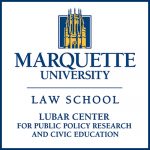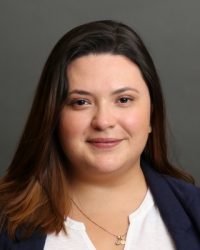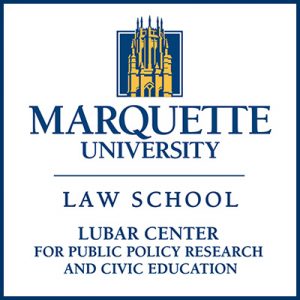Gerrymandering, geography, and competitiveness
This blog post continues the focus of the Law School’s Lubar Center on redistricting.
Many discussions of “gerrymandering” are hampered by an often  unacknowledged tension between competing goals. Gerrymandering is classically defined as weirdly-drawn districts manipulated from some ideal (or “natural”) form so as to benefit a particular party or politician. In practice, people see evidence of gerrymandering when one party consistently wins a share of legislative districts in excess of its proportion of the overall vote.
unacknowledged tension between competing goals. Gerrymandering is classically defined as weirdly-drawn districts manipulated from some ideal (or “natural”) form so as to benefit a particular party or politician. In practice, people see evidence of gerrymandering when one party consistently wins a share of legislative districts in excess of its proportion of the overall vote.
Proponents of “fair maps” may be motivated by concern over a partisan imbalance, but they typically define “fairness” with regard to the first definition of gerrymandering. A fair map is one drawn without regard to political advantage. Instead, districts should follow the boundaries of existing communities where possible.
There’s the rub. Imagine if Wisconsin’s Constitution called for our decennial redistricting to be carried out by an alien species of mapmaking specialists who are unaware of the existence of Democrats or Republicans but are nonetheless imbued with a passion for compactness, contiguity, and the preservation of municipal boundaries. These extraterrestrial cartographers could provide us with thousands of maps to choose from, but probably every last one of them would still give Republicans a legislative majority when the statewide vote was a tie. The reason, as we shall see, is where partisans live and how they cluster together.

 After a bit of a hiatus, our guest bloggers are returning! This month we are excited to welcome 3L Vanessa Flores to blog with us as our Student Contributor. Vanessa is originally from Ecuador but called Chicago home before coming to Marquette. She is interested in civil litigation and will be doing that after graduation. When not studying law, Vanessa enjoys spending time with her cats, Simba and Bolt, and exploring Wisconsin with her boyfriend and his dogs. Welcome Vanessa!
After a bit of a hiatus, our guest bloggers are returning! This month we are excited to welcome 3L Vanessa Flores to blog with us as our Student Contributor. Vanessa is originally from Ecuador but called Chicago home before coming to Marquette. She is interested in civil litigation and will be doing that after graduation. When not studying law, Vanessa enjoys spending time with her cats, Simba and Bolt, and exploring Wisconsin with her boyfriend and his dogs. Welcome Vanessa!